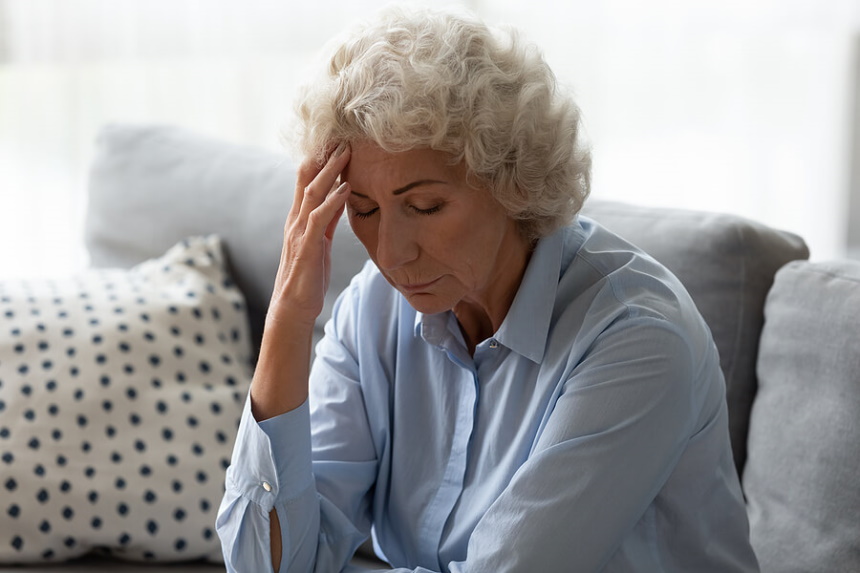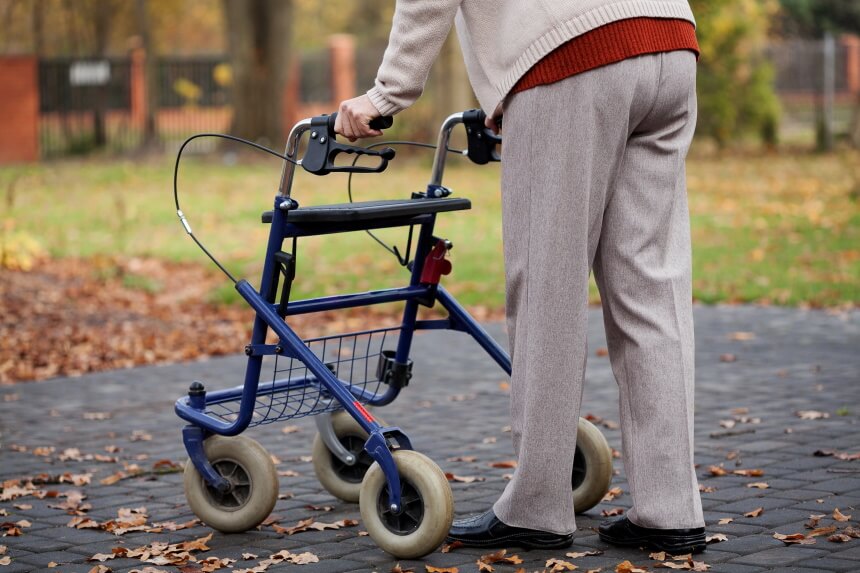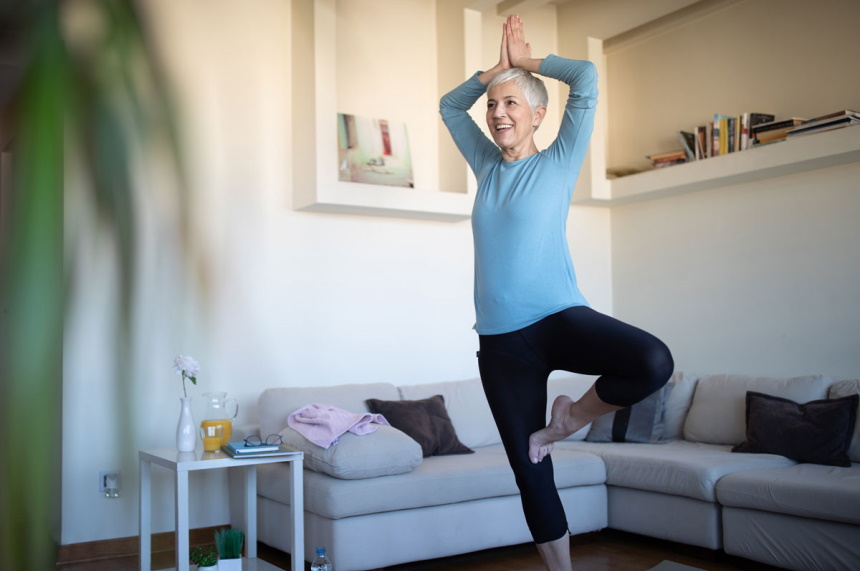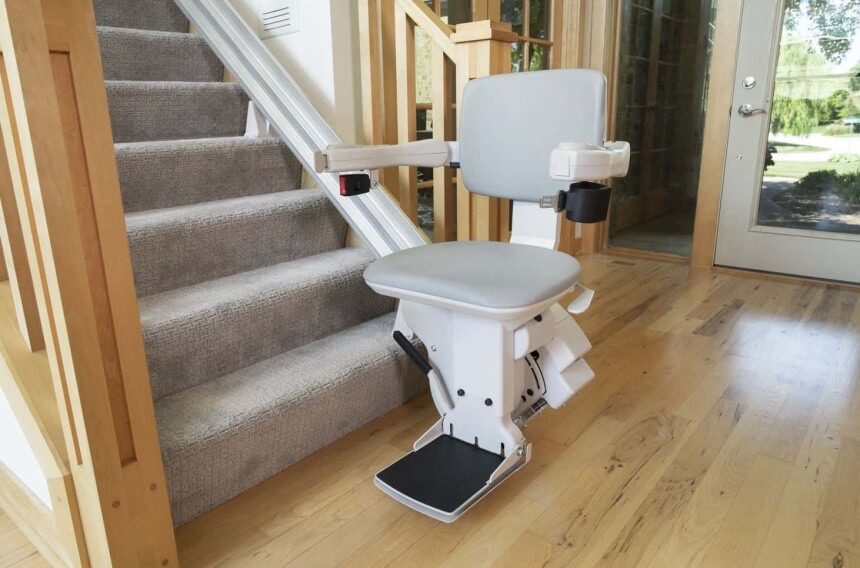Why do older people lose their balance? There are a number of health problems that can contribute to loss of balance, such as low blood sugar and vertigo, but why do these types of issues impact older people in particular? Losing one’s balance is something almost everyone experiences at some point during their life. Perhaps, as a toddler, you took a tumble over some toys scattered across the floor. Maybe, as a young adult, you stubbed your toe on a chair leg or tripped over a long cord. While this may have been painful for a few minutes, it probably did not cause long-lasting issues. For older people, however, loss of balance can come with a unique series of concerns and consequences.
There are a number of health issues that can bring on balance problems for senior citizens. The human body is generally unstable in the first place due to having a small base in comparison to height. Older people are especially prone to losing their balance as a result of issues like dementia, Parkinson’s disease, and vertigo. As you age, your vision and hearing get worse as well, which can lead to depth perception issues and a lack of awareness of one’s surroundings. Getting older also tends to come with joint pain and decreased flexibility, both of which can cause mobility and balance issues.

You may also experience symptoms like lightheadedness and blurred vision. These symptoms might last for several minutes or sometimes even days.
Balance problems are often characterized by dizziness and nausea. You may feel like you need to sit down or grab hold of something to keep from falling over. Do not hesitate to call your doctor if you are feeling faint. If balance problems have negatively impacted your quality of life, your doctor might recommend doing some mobility exercises or using a lightweight walker as a mobility aid.
It’s important to listen to your body, especially as you get older. Before losing your balance, you might feel like the room is spinning, which can lead to dizziness, confusion, and anxiety. Try not to panic. If you’re in a place where you can sit down, do so slowly and call someone who can help. It may be difficult to identify balance problems in your loved ones who have reached old age. Losing one’s balance can be embarrassing for a lot of older people, even though mobility issues are nothing to be ashamed of.
Your grandmother might try to tell you that she’s fine — that she doesn’t need a more heavy-duty walker. However, if you notice certain things in her behavior, like stopping talking while walking or grabbing onto the wall for extra balance support, it might be time to sit down with her and have a conversation about her options.
It can be frustrating and difficult to come to terms with the fact that you’ve been losing your balance more often as you get older. It can be helpful to talk to others experiencing similar problems or seek guidance from a physical therapist. If you are concerned that you or a loved one might be experiencing a balance disorder such as vertigo, make an appointment with your doctor to discuss options. Vertigo may be caused by central or peripheral issues involving the inner ear.
Once Benign paroxysmal peripheral vertigo has been diagnosed, it can be treated with the Epley maneuver Trusted Source Efficacy of Epley Maneuver on Quality of Life of Elderly Patients with Subjective BPPV - PubMed This study showed that elderly patients with S-BPPV benefit from the Epley maneuver, in particular global and disease-specific quality of life. pubmed.ncbi.nlm.nih.gov , which has been proven to be quite effective and reduce symptoms. More information about vertigo and how to cope with the symptoms can be found here Trusted Source An approach to vertigo in general practice - PubMed The causes of vertigo may be central (involving the brainstem or cerebellum) or peripheral (involving the inner ear). A careful history and physical examination can distinguish between these causes. The most common causes of vertigo seen in primary care are benign paroxysmal positional vertigo. pubmed.ncbi.nlm.nih.gov .

Assistive devices like stair lifts can also be installed in your loved one’s home, which will safely aid them in getting up and down the stairs.
Balance issues can be managed in a number of different ways. Daily exercise is a great way to stay fit, combat stiffness, and keep your body mobile. Mobility aids like walkers for rough terrain can also be helpful in maintaining your mobility and independence. If your elderly loved one is having trouble standing up, there are certain things you can do to help them get to their feet in a safe way. Managing balance issues is ultimately a combination of listening to your body, not pushing your limits, and asking for help when you need it. With time, dedication, and the right assistance, older people with balance issues can live a fulfilling life free of the anxiety, fear, and pain that comes with falling down. The next part of this article will outline several helpful coping mechanisms and ways to manage the loss of balance.
Health problems like Parkinson’s disease and dementia often play a large role when it comes to balancing issues in older people. Speak to your doctor if you or a loved one is experiencing symptoms like rigidity or tremor, both of which are signs of Parkinson’s disease Trusted Source Epidemiology of Parkinson's disease - PubMed Parkinson’s disease (PD) affects 1-2 per 1000 of the population at any time. PD prevalence is increasing with age and PD affects 1% of the population above 60 years. pubmed.ncbi.nlm.nih.gov . Current fall prevention for people with dementia has actually been proven to be relatively ineffective, but scientists are working to develop a more helpful intervention. More information about this study can be found here Trusted Source A development study and randomised feasibility trial of a tailored intervention to improve activity and reduce falls in older adults with mild cognitive impairment and mild dementia - PubMed People with dementia progressively lose abilities and are prone to falling. Exercise- and activity-based interventions hold the prospect of increasing abilities, reducing falls, and slowing decline in cognition. pubmed.ncbi.nlm.nih.gov . Ask your doctor about options, and be open to discussing medication. It may take some time for you and your doctor to figure out something that works for you, but addressing these health problems is certainly the first step on the road to recovery, coping, and comfort.

Along with keeping active, there are several things you can do to support a healthy lifestyle for yourself. Eating leafy greens and healthy sources of protein like eggs and black beans can help keep your body strong and your mind sharp.
Exercises that specifically target gait, balance, and strength have been proven to prevent falls in older people experiencing balance issues. More information about this study can be found here Trusted Source Exercise for preventing falls in older people living in the community - PubMed Exercise programmes reduce the rate of falls and the number of people experiencing falls in older people living in the community. The effects of such exercise programmes are uncertain for other non-falls outcomes. pubmed.ncbi.nlm.nih.gov . Ask your doctor or physical therapist about balance exercises, as well as how often you should perform them.
Daily walks are also a great way to stay healthy. Even if all you can manage are short walks, that is certainly better than nothing, and your body will thank you for it. You might feel more supported while walking if you use an upright walker or a similar mobility aid. It could be nice to have someone walk with you as well if you’re not feeling totally confident yet!

Installing assistive devices like ramps and stair lifts can help you move more freely around your home without worrying too much about stumbling or falling.
For younger people who still have full mobility, installing these assistive devices in your own home can make your space more accessible to seniors with mobility issues and people with disabilities.
To make your home even more accessible and easy to move around in, make sure you remove any obstacles that could cause you to trip and fall. This includes any clutter, dog toys, or random items lying about. Removing these obstacles will give you peace of mind and help you feel more comfortable at home.
Everybody experiences a fall at some point in their lives, but this is especially a concern for older people. Call your doctor if you experience symptoms like nausea, dizziness, and feeling faint. There are a number of reasons why older people lose their balance, including changes in vision and health problems that cause balance issues. Thankfully, there are people who can help you, and mobility aids like walkers and stair lifts are available to make your life just a little bit easier. Remember to listen to your body, be as conscious as you can about your surroundings, and don’t be afraid to ask for help when you need it.